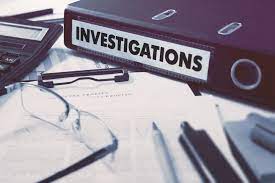5 Common Internal Investigation Pitfalls

An internal investigation is like reading a good novel. You begin the journey with a general expectation of what the novel or the “investigation” is about. As every reader knows, the exhilaration is the result of following an unexpected path filled with moments of discovery, surprise and ultimately a basis for understanding.
Internal investigations can follow a similar path. In some cases, the end of the story (e.g. an oil well explosion) or dramatic event is known. In others, for example, a hotline report of alleged misconduct is substantiated after a thorough investigation involving a slow but steady understanding of what occurred, who was involved and how the scheme was executed.
To succeed, however, an investigator has to avoid common traps. While some of these may be basic, investigators can face mounting pressures from internal (e.g. CEO, the board) and/or external sources (e.g. government prosecutors, shareholders and other stake holders). Shortcuts in these difficult circumstances can have a serious negative impact on the investigator’s ability to access information or conduct effective investigation procedures.
Here are five common pitfalls:
Pre-Conceived Results: When launched, an investigator has to avoid applying a pre-conceived answer. In response to a whistleblower complaint, some investigators may look for ways to discount the accuracy or credibility of the report. In many cases, CEOs and senior executives may hope that the whistleblower complaint turns out to be unfounded. The investigator, however, has to remain objective and follow the leads to make a fair assessment. It is easy to rationalize facts away, or avoid the implications of a specific factual findings, and investigators have to remain true to their mission – to investigate with an objective mindset.

Failure to Understand (or Follow) Assigned Scope: Investigators have to understand and follow the assigned scope of the inquiry, particularly when assigned by the organization’s board or committee. An investigation that ignores the scope of the assignment can present real and practical problems for the organization once the investigation is complete. A clear and concise statement of the investigation purpose and scope should be adopted by the board committee charged with oversight of the investigation. The discussion of this issue between the board and the investigator is critical to ensure a smooth hand-off and execution.
Delayed Document Preservation: Important internal investigations are often launched rapidly in response to a real and significant concern. It is important to ensure that an initial document preservation hold is prepared and communicated throughout the organization. A follow up message should be scheduled to remind everyone subject to the order to the obligation and that the hold remains in place until notified otherwise. A rapid document hold is needed to minimize the risk of document destruction and to ensure that any actor attempting to destroy documents is on notice of the obligation to preserve documents.

Premature Interviews: Investigators often face significant internal pressure to reach a result, even if it is tentative. Business leaders want to know quickly so they can plan down the road for responding to the investigation and executing remediation plans. Everyone understands the need for answers but a careful investigation requires methodical steps. An investigator has to collect, process and review relevant documents before interviewing key players in the investigation. This can cause some delay. On rare occasions, an investigator may decide to interview a subject of the investigation before completing the review of relevant documents involving that subject. Such a tactic is very risky – the interviewer may lack key information needed to review with the witness. As a result, a witness may get an early glimpse of the scope of the investigation and what information the investigator may or may not have. A subject may be able to take certain steps to protect against detection and avoid responsibility for his/her actions. In most cases (if not nearly all) investigators have to avoid conducting interviews of subjects without having the relevant documents to reference during the interview.
Responding to Internal Pressure: A CEO or senior executive who has much to lose from an internal investigation will inevitably communicate to the investigator the importance of the investigation to the CEO or senior executive. Investigators have to establish clear boundaries surrounding these kinds of communications. If unchecked, a CEO can infiltrate and influence an investigation, thereby undermining the very purpose of the investigation.















I agree on all five points that you have brought to the readers attention and or reminder. Throughout over 40 years of investigative experience both with the police and private sector, I always found that your integrity is by far the priority in all investigations that you conduct and will take you through any inside or outside influence on the manner you conduct and the outcome of your investigation. At the end of the day, you are the one that must be comfortable with the outcome of your investigation by having done a proper, thorough and unbiased investigation and walk away with your “chin up”!